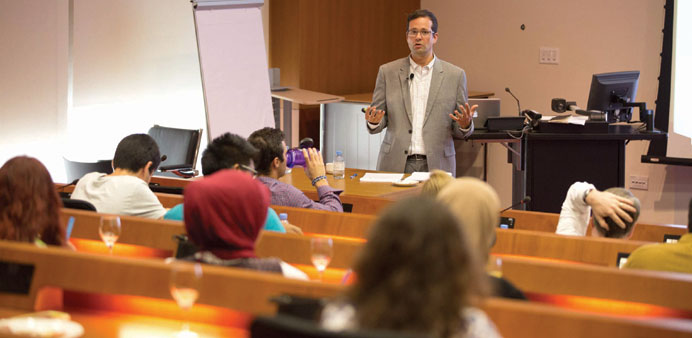The second in a series of occasional papers recently published by Northwestern University in Qatar (NU-Q) focuses on understanding the impact of rapid technological innovation on the global media ecosystem.
In ‘Disruption, Digital Innovation and the Entertainment Revolution’, Michael Joseloff, who is vice president of marketing for the Fortune and Money Group at Time Inc., helps contextualise how developments in digital and mobile video, multiscreen distribution, big data, the programmatic ad marketplace, native advertising, social media, and other technologically driven phenomena have and will influence the trajectory of media related industries.
Joseloff’s paper expands on his September 2014 NU-Q lecture in which he outlined media disruption across four domains: content/storytelling; distribution/reach; monetisation/ value and build/marketing.
Drawing on his experience at Viacom, the A&E/Lifetime entertainment group, and Time Inc., as well as third-party analyst research, Joseloff examines how ongoing technological innovation is affecting the structure, operations and content of media industries, including Internet platforms, publishing, cable and motion picture. He also discusses how both traditional and new media enterprises and services are all vying with each other for consumers’ time and attention.
“This occasional paper is a snapshot of the communication landscape in the midst of disruptive forces and trends that are once again reshaping media,” said Joseloff.
“Media institutions and enterprises are constantly evolving, but contemporary disruption is happening at an accelerated pace, with companies disappearing as rapidly as new ones come along. This paper is not meant to be a definitive roadmap; rather, it is intended to inspire further exploration, study, professional development, conversation and debate.”
“We hope this paper will serve as part of a continuing conversation about the meaning and consequences of disruption for students entering the media and communication industries,” said Everette E Dennis, dean and CEO, NU-Q.
“Today, one’s survival in media depends on more than fitting in at a legacy media company; it relies on navigating through and engaging with sweeping change that is, in fact, the future.”

Michael Joseloff during an interaction with the students of NU-Q.
